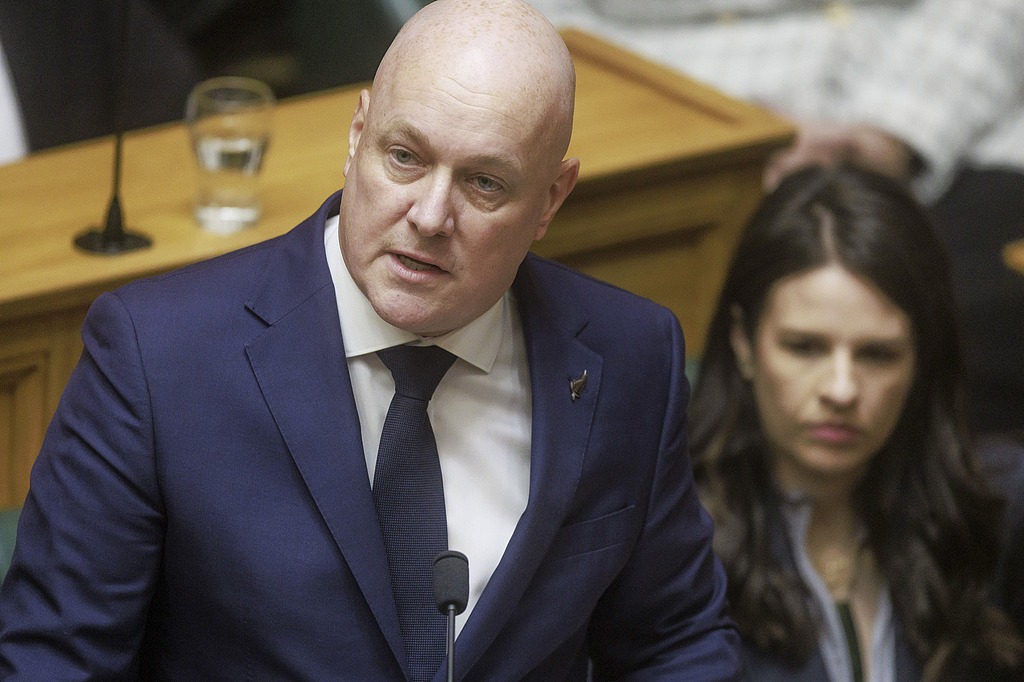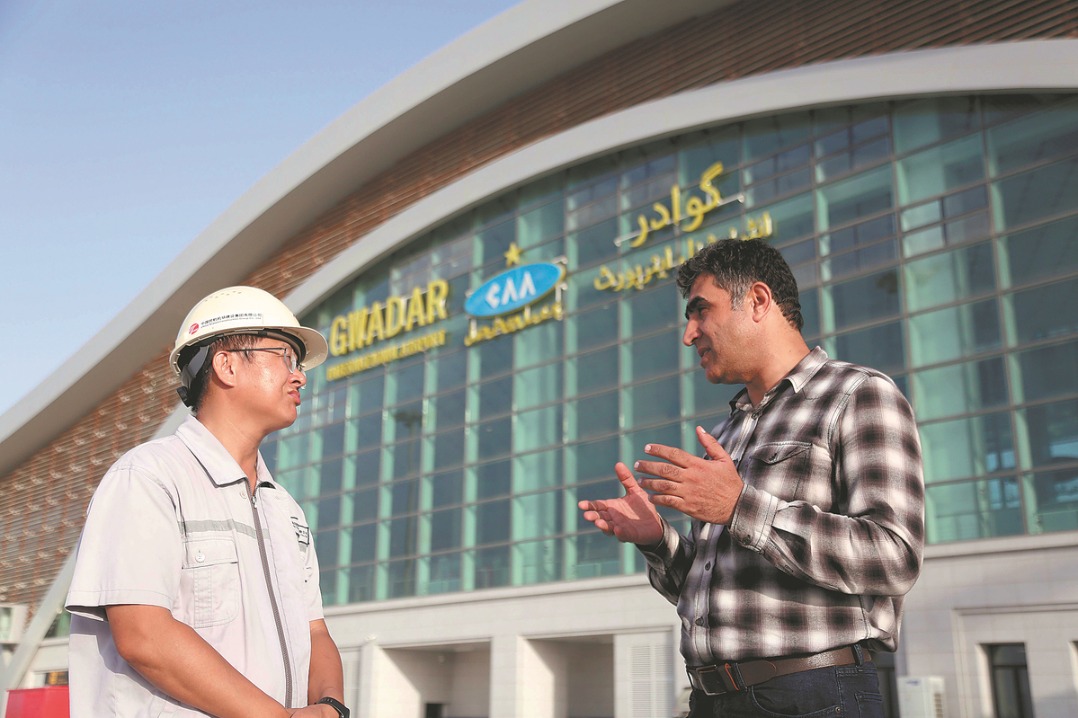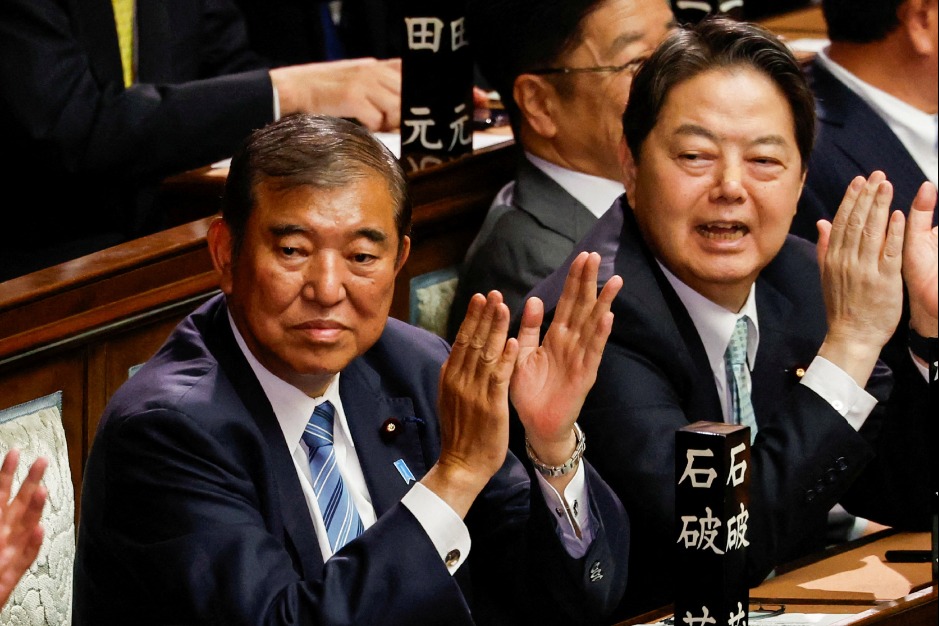Youthful orchestra keeps tradition alive

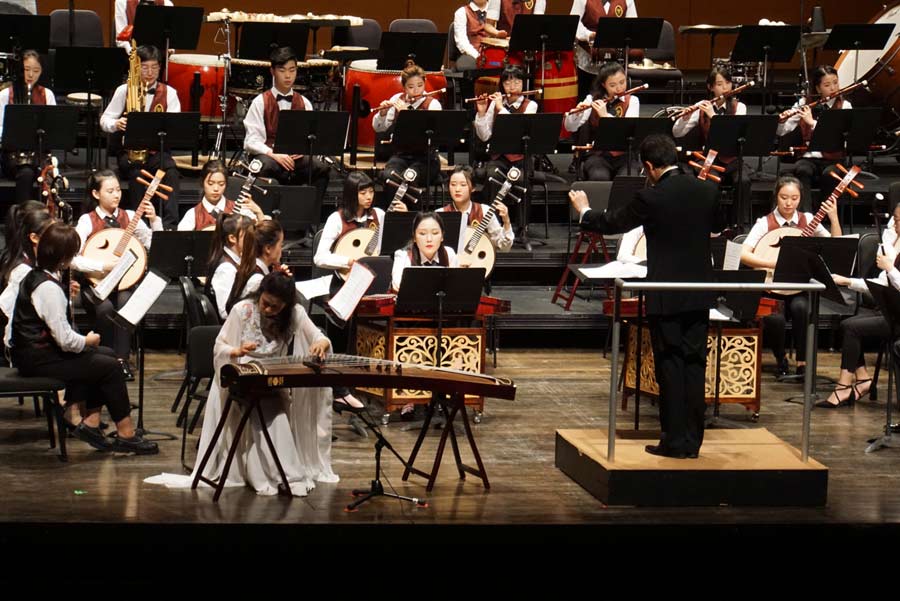
More than 50 Chinese students made their debut as the Bard Youth Chinese Orchestra (BYCO) on Friday night at Bard College in New York's Upper Hudson Valley, treating the American audience to melodic works with uniquely Chinese elements rarely performed in the US.
From the Anhui folk song Fen Yang Flower Drums to Silk Road, which shapes traditional Chinese instruments into a variety of Western styles, the concert featured a full ensemble including erhu, guzheng, pipa, xhongruan and dizi.
"The students in the BYCO are members of our summer academy program, which is part of our partnership with the Central Conservatory of Music in Beijing," said Robert Martin, director of the Bard Conservatory of Music.
The Chinese Music Development Initiative, in which Chinese folk instruments are being formally taught in a Western music education system for the first time, was launched last year by Beijing's Central Conservatory of Music (CCOM) and Bard College Conservatory of Music and inaugurated in January at Bard.
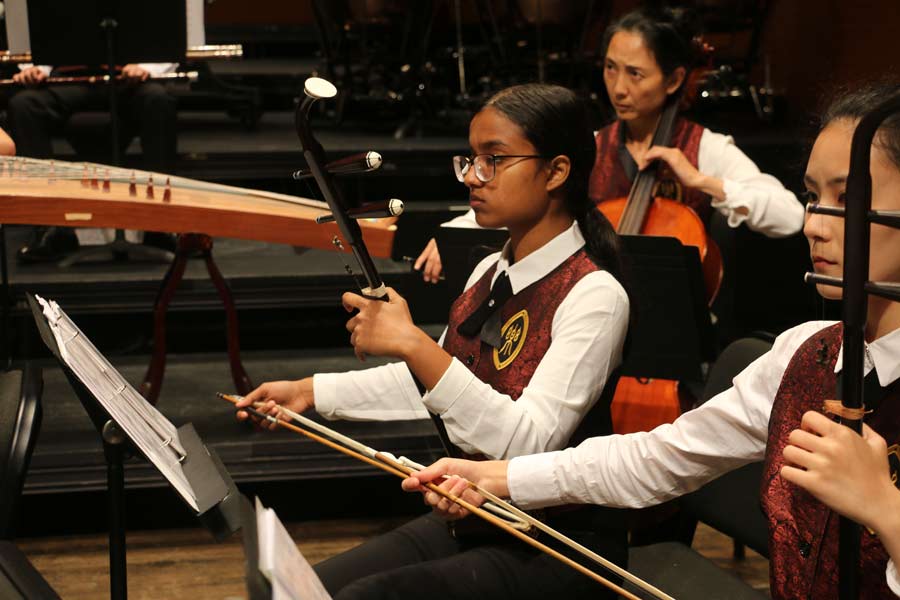
The summer academy program that brought high school students to perform in the US for the first time is part of the partnership that also includes the first undergraduate program for the erhu, guzheng and pipa in the US, a modern Chinese music festival every year at Bard and an annual scholarly conference on historical and contemporary aspects of Chinese music in the US.
"In the past few months, we've been recruiting students who want to come to Bard College for the five-year undergraduate conservatory program," Martin said. "Our undergraduate program is unusual because during the five years, the students get two degrees - one music bachelor degree and the other degree in liberal arts which can be literature, philosophy or biology.
"The new idea was to include Chinese instruments now as majors in the conservatory, so this year we started with four students - two guzheng and two erhu players," Martin said.
"Three of them come from China and one of the guzheng players is from Houston," he added. "We hope it will grow more students each year, more instruments, and that's really important because that's the real core of our program."
"Just as Western music started to gain popularity gradually in China four centuries ago, the goal of our initiatve is to promote the study, performance, and appreciation of music from contemporary China," said Cai Jindong, director of the US-China music institute at Bard and conductor of the BYCO.
"The summer academy is one of the steps we are taking, we hope Chinese music can take root and develop in the US through these exchange programs and our degree programs," Cai said.
The teachers at the summer academy are some of the best traditional Chinese music teachers from the CCOM, said Cai, including Yu Hongmei, dean of the Chinese music department at CCOM, and 10 other distinguished professors from the CCOM.
The students from China studied and rehearsed for two weeks on the Bard campus and had two concerts, one at Bard and one at Harvard University.
"This orchestra is at a way higher level than the other (traditional Chinese) orchestras in the US," said Suhasna Liyanaarachchi, an American student at New Brunswick High School in New Jersey who played the erhu with the youth orchestra. "I think I've improved a lot from participating in it."
Liyanaarachchi said she started to learn the erhu three years ago when she became fascinated by a YouTube video by professor Yu, the co-artistic director at the BYCO, playing the instrument.
"The first time I saw her in the same room with me, my heart started beating so fast," Liyanaarachchi added. "It's really difficult to find a good erhu teacher in the US, so I really cherish this opportunity"
"To perform in the US is very different from performing in China," said Xu Miao, a 16-year-old student at Central Conservatory of Music Affiliated High School who played the xhongruan at the BYCO.
Contact the writer at [email protected].
















